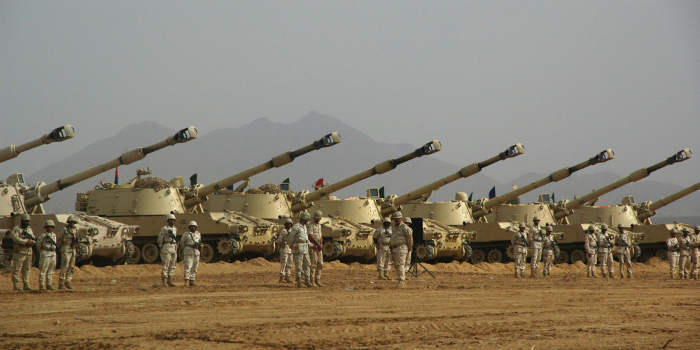Strengthening Military Ties: The Imperative of Enhanced Nigeria-China Cooperation
Jerry Adesewo
Whenever you think of Nigeria and China, there are two variables you can’t ignore: the shared independence date of October 1 and their massive populations. Nigeria, with a population of over 220 million, is the most populous country in Africa. China, on the other hand, is the most populous country in the world, with over 1.4 billion people. These demographic similarities make both nations significant players in their respective regions and globally.
Thus, the Chief of Defence Staff (CDS), General Christopher Gwabin Musa, on May 22, 2024, welcomed the Chinese Deputy Commander of the People’s Liberation Army, Lieutenant General Jia Zhigang, at the Defence Headquarters in Abuja, in what I shall call a significant development for Nigeria’s defense sector. The visit, facilitated by an invitation from the Chief of Air Staff for the Nigerian Air Force’s (NAF) 60th anniversary, underscores the deepening military ties between Nigeria and China.
Read Also: Nigeria Initiates Partnership with China for Military Hardware Production in Ajaokuta
Reflecting on the history of Nigeria-China relations, it is evident that both nations have progressively nurtured a robust partnership. Historically, China has been a vital ally to Nigeria, particularly in providing military hardware and technological support. This collaboration has been crucial in Nigeria’s ongoing battle against terrorism, insurgency, and other criminal activities. Lieutenant General Zhigang’s visit highlights China’s appreciation for Nigeria’s efforts and the mutual benefits derived from their partnership.
2015, a China-made drone crashed in the countryside of Nigeria. It is believed the drone was involved in Nigeria’s struggle against the Islamic militant group, Boko Haram. China supplied the CH-3 to Nigeria’s government before 2014, along with YC-200 guided bombs and AR-1 air-to-ground missiles. In 2020, the Nigerian Air Force (NAF) Chief, Air Marshal Sadique Abubakar, disclosed that the NAF had concluded the acquisition of eight Wing Loong II, CH-4, and CH-3 drones.
During his visit, Lieutenant General Zhigang commended Nigeria’s Armed Forces for their relentless fight against terrorism and other security challenges. He emphasised the need for greater cooperation in research, innovation, and the development of Unmanned Aerial Vehicles (UAVs). He also highlighted the importance of training younger Nigerian Air Force officers, suggesting that knowledge transfer and capacity building are critical for long-term success.
General Musa reciprocated the goodwill, acknowledging the long-standing relationship between Nigeria and China. He expressed gratitude for China’s continuous support in combating terrorism and insurgency. General Musa also lauded China’s advancements in military technology, particularly in producing military hardware, and called for further collaboration to enhance the capabilities of the Nigerian Armed Forces (AFN).
The CDS’s call for enhanced military technology cooperation is timely and essential. The establishment of Chinese-owned companies in Nigeria to produce military hardware could be a game-changer, potentially reducing dependency on imports and boosting local production capabilities. This initiative could also create job opportunities and foster technological advancement within Nigeria.
Moreover, General Musa’s assurance of the AFN’s readiness to embark on exchange and training programs with the People’s Liberation Army (PLA) is a strategic move. Such programs could facilitate the exchange of best practices, improve operational efficiency, and build stronger military-to-military relations. These exchanges are not just about technology transfer but also about building trust and understanding between the two nations’ military personnel.
Historically, international military cooperation has proven beneficial in enhancing national security and fostering global peace. The proposed Nigeria-China military collaboration could set a precedent for other African nations, showcasing the benefits of strategic partnerships in addressing security challenges.
In conclusion, the meeting between General Musa and Lieutenant General Zhigang, no doubt marks a pivotal moment in Nigeria-China relations, if Nigeria works hard to take advantage of it. It highlights the importance of international cooperation in addressing contemporary security challenges. As Nigeria seeks to bolster its military capabilities, enhanced cooperation with China, particularly in military technology and training, is not only desirable but imperative. This partnership has the potential to significantly strengthen Nigeria’s defense sector, ensuring better security and stability for the nation.
As we look forward to the fruition of these discussions, both nations need to maintain this momentum and work towards a mutually beneficial future. This collaboration could very well serve as a model for other nations, illustrating the power of strategic alliances in fostering peace and security globally.



